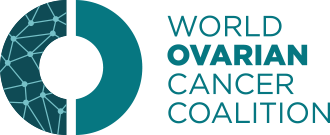Between now and 2040 we will lose over four million women worldwide to ovarian cancer. This is the hard reality of the future of this lethal disease.
Rather, that is unless we take urgent action now.
Current estimates state that each year over 300,000 women globally are diagnosed with ovarian cancer. That figure is set to rise significantly – by almost 50% over the next twenty years to almost half a million. As it stands right now, well over half will die within five years of their diagnosis making this disease the one of the deadliest of all women’s cancers.
These are shocking statistics, but they don’t really quantify the true tragedy of this loss. These are not only our mothers, sisters, cousins, and friends, but they are also business owners, athletes, scientists, teachers, doctors, and more. In just 18 years four million women and the vital contributions they make to society will be gone.
Distressingly, we are also increasingly aware that for many women geographic, financial, and social circumstances stand between them and access to best possible care.
In a recent exercise, the World Ovarian Cancer Coalition looked at access to ovarian cancer treatment across thirteen countries, from low- to high-income. This review of availability, accessibility, and affordability covered a core set of standard ovarian cancer treatments. With the exception of PARP inhibitors, the recent, break-through treatment for some women with a genetic mutation or tumour characteristics all of the other treatments included are currently on the WHO’s Essential Medicines List (EML).
Unsurprisingly PARP inhibitors were rarely available to women in lower income countries. Indeed, it was found that even some high-income countries have limited access to this treatment. What was shocking, though, was that women in lower income countries do not even have routine access to the most basic of treatments that have been in use for decades.
However, the review’s most concerning conclusion was that the women least able to afford treatment were the ones most likely to have to pay out-of-pocket. Women in higher-income countries are more likely to have access to state or private coverage, women in low- and middle-income settings are more likely to pay for more than half of the core treatments themselves – even if they are approved for use and available in their country. It is worth noting that 70% of the woman who are diagnosed with ovarian cancer each year live in lower income countries.
More generally, low global awareness of the disease, on the part of health care professionals as well as women, hampers a more rapid diagnosis – with delays in initial investigations, testing, referrals to specialist surgery and care all standing in the way of potentially better outcomes.
Even where there is awareness, healthcare systems frequently lack the resources and expertise to help women. Many lower income countries also suffer from a pronounced lack of specialist cancer physicians and support services, all hindering women’s chance of receiving the best possible care.
On a positive note, there is actually a lot to feel excited about in relation to new developments in the understanding of ovarian cancer and treating it more effectively. But this will only make a difference if we take meaningful steps today on behalf of the millions of women we stand to lose in the very near future. Our Global Ovarian Cancer Charter sets out the following six key areas that require action.
- Make ovarian cancer a global priority: including examining guidelines on the diagnosis and care for women; investing and better planning at local, national, and international levels.
- Rapid diagnosis: increase awareness among individuals and across healthcare systems so that women have the best chance of being diagnosed without delay.
- Commitment to best possible care: tangible investments in ovarian cancer care including training, hiring, and retaining ovarian cancer healthcare professionals and specialists as well as financial support to those without means to access treatments.
- Data improvement: current ovarian cancer data fluctuates widely and excludes many. It is vital we improve and increase the quality, quantity, and diversity of data on this disease so we can determine and develop evidence-based strategies for those with ovarian cancer so they have the chance at the best possible outcomes – no matter where they live.
- Support and inform: those diagnosed with ovarian cancer must have access to appropriate information and support in their own language and their mental and physical well-being should be considered in equal measure.
Women deserve better. The time for us to act is now to close the care gap. Whoever and wherever you are, please join us so no woman is left behind.
Clara MacKay
CEO
World Ovarian Cancer Coalition
